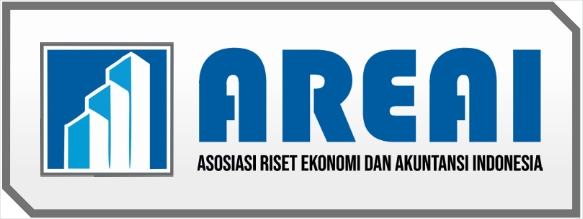Per Capita Income on Poverty in Malaysia
DOI:
https://doi.org/10.55606/iceb.v1i1.312Keywords:
per Capita Income, Poverty, WelfareAbstract
Poverty can worsen as it makes it difficult for people to fulfill their basic needs. Income is a key indicator in overcoming poverty as an increase in income can increase people's consumption levels. This study aims to examine the relationship between per capita income and the poverty rate in Indonesia. This research uses a qualitative descriptive approach by referring to literature studies that include previous research journals. The results show that, in general, per capita income has a negative relationship with the poverty rate. In other words, as per capita income increases, the poverty rate tends to decrease. The level of per capita income in a country directly affects the growth of the number of poor people in the country, as low-income levels will hinder people's ability to fulfill basic needs, maintain health, and obtain higher education.
References
Azizah, E. W., Sudarti, S., & Kusuma, H. (2018). The effect of education, per capita income and population on poverty in East Java Province. Journal of Economics, 2(1), 167-180.
Hastina, F. (2017). The Effect of Per Capita Income, Investment and Inflation on Poverty in North Sumatra Province. Journal of Economics, 3(2), 156-166.
I Made Anom Iswara. (2014). The Effect of Local Revenue, Per Capita Income, and Education Level on Poverty Level in Bali Province in 2006-2011. Journal of EP Unud, 492-501.
Kurniawan, A. (2014). Research Methods for Economics & Business: Theory, Concept & Practice of Business Research (Equipped with Data Management Calculations with IBM SPSS 22.0).
Mustamin, S. W., & Nurbayani, S. U. (2015). The influence of macroeconomic variables on poverty in Makassar City, South Sulawesi province. Journal of Analysis, 4(2), 165-173.
Putra, S. A. (2020). The Effect of Per Capita Income, Education Level and Population on Poverty. https://repository.uinjkt.ac.id/dspace/bitstream/123456789/50190/1/SATRIAHADY AULIYA PUTRA-FEB.pdf
Ramdani, M. (2015). Determinants of poverty in Indonesia 1982-2012. Economics Development Analysis Journal, 4(1), 58-64.
Sugiyono. (2012). Qualitative Research Methods. ALFABETA.
Sukirno, S. (2004). Macroeconomics, Jakarta: PT Raja Grafindo Persada.
Sukirno, S. (2006). Introductory Theory of Microeconomics. PT. Raja Grafindo Persada.
Sunarya, I. B., & Indrawati, D. (2018). Analysis of the Effect of GRDP Per Capita, Education, Health, Unemployment, and Minimum Wage on Poverty Level in Central Java Province in 2010-2015. Thesis. Faculty of Economics and Business, Padjajaran University.
Sutrisna, K., & Pratiwi, S. (2014). The Effect of Labor Productivity, Education, and GRDP Per Capita on Poverty in Bali Province. E-Journal of Development Economics, Udayana University, 3(10), 44484.
Todaro, M. P., & Smith, S. C. (2003). Economic development in the 3rd World. Erlangga, Jakarta.
Wiguna, V. I., & Sakti, R. K. (2012). Analysis of the Effect of GRDP, Education, and Unemployment on Poverty in Central Java Province in 2005-2010. Scientific Journal of FEB Students, 1(2).
Wirawan, I. M. T., & Arka, S. (2015). Analysis of the effect of education, GRDP per capita, and unemployment rate on the number of poor people in Bali province. E-Journal of Development Economics, Udayana University, 4(5), 44542.
World Bank. (2017). World Development Indicators 2018. World Bank. https://doi.org/CC BY 3.0 IGO
Yunianto, D. (2020). Analysis of the Influence of Poor Population Growth. Accountable Journal, 17(2), 173-180. Population growth; poverty; multiple linear regression.
















